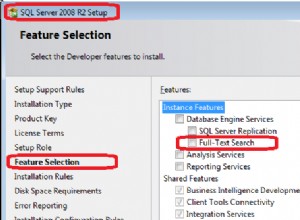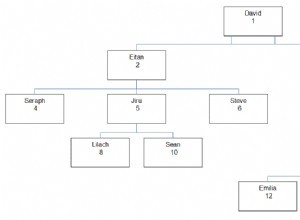E le transazioni? Hanno la funzione ROLLBACK.
@vedi https://dev.mysql.com/doc/refman /5.0/en/commit.html
Ad esempio:
START TRANSACTION;
SELECT * FROM nicetable WHERE somthing=1;
UPDATE nicetable SET nicefield='VALUE' WHERE somthing=1;
SELECT * FROM nicetable WHERE somthing=1; #check
COMMIT;
# or if you want to reset changes
ROLLBACK;
SELECT * FROM nicetable WHERE somthing=1; #should be the old value
Risposta alla domanda di @rickozoe di seguito:
In generale queste righe non verranno eseguite come una volta. In PHP ad es. scriveresti qualcosa del genere (forse un po' più pulito, ma volevi rispondere velocemente;-) ):
$MysqlConnection->query('START TRANSACTION;');
$erg = $MysqlConnection->query('UPDATE MyGuests SET lastname='Doe' WHERE id=2;');
if($erg)
$MysqlConnection->query('COMMIT;');
else
$MysqlConnection->query('ROLLBACK;');
Un altro modo sarebbe utilizzare le variabili MySQL (vedi https:/ /dev.mysql.com/doc/refman/5.7/en/user-variables.htm terrahttps://stackoverflow.com/a/18499823/1416909 ):
# do some stuff that should be conditionally rollbacked later on
SET @v1 := UPDATE MyGuests SET lastname='Doe' WHERE id=2;
IF(v1 < 1) THEN
ROLLBACK;
ELSE
COMMIT;
END IF;
Ma suggerirei di utilizzare i wrapper di lingua disponibili nel tuo linguaggio di programmazione preferito.




